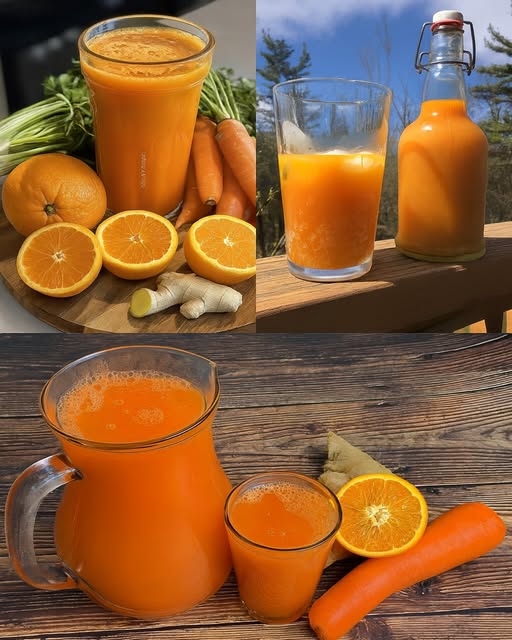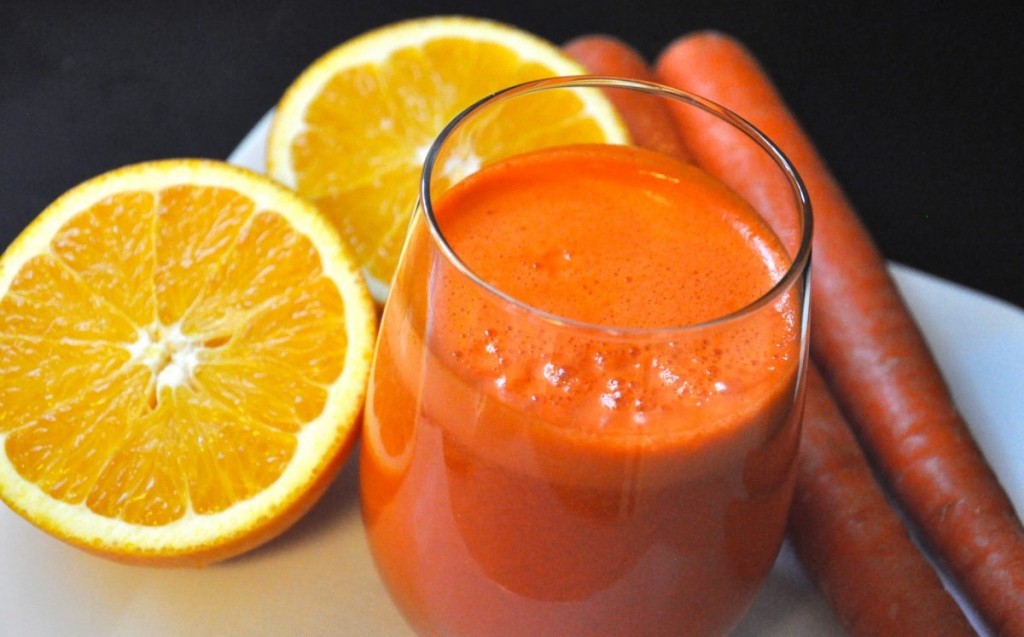Did you know that one glass of fresh juice can pack more nutrients than a typical snack or even some meals? According to the USDA, carrots and oranges are among the top sources of vitamins A and C, two essential nutrients for vision, skin, and immune health. When combined, they create a powerhouse drink that’s both refreshing and nourishing.
Carrot orange juice is more than just a tasty morning beverage—it’s a simple way to fuel your body with antioxidants, minerals, and fiber (if you keep some pulp). People across cultures have used fresh carrot and citrus blends for decades to support vitality, especially during the winter months when immunity tends to dip.
In this article, you’ll learn what makes carrot orange juice so special, the benefits of drinking it regularly, how to prepare it at home, and creative ways to enjoy it beyond the traditional glass. We’ll also look at real-life experiences and provide a handy comparison of juice vs. smoothies. By the end, you’ll see why this golden-orange drink deserves a spot in your daily routine.

Why Carrot Orange Juice is a Nutritional Powerhouse
Carrots and oranges each bring their own set of health-supporting compounds, and together, they create a synergy that tastes great and works wonders for your body.
Nutritional Highlights of Carrots
- Rich in beta-carotene, which converts to vitamin A and supports eye health.
- Contains antioxidants like lutein and zeaxanthin that help protect against oxidative stress.
- Provides potassium, which supports healthy blood pressure.
Nutritional Highlights of Oranges
- Excellent source of vitamin C, crucial for immune defense and collagen production.
- Natural sugars and fiber (when not fully strained) provide gentle energy release.
- Flavonoids and antioxidants may support heart health.

Why the Combination Works
- Vitamin A from carrots and vitamin C from oranges complement each other: one supports vision and skin, the other strengthens immunity.
- The sweetness of oranges balances the earthy taste of carrots, making it appealing even for kids.
- Together, they hydrate, refresh, and provide a gentle detox effect.
| Nutrient | Carrots | Oranges | Benefit |
|---|---|---|---|
| Vitamin A | High | Low | Eye health, glowing skin |
| Vitamin C | Low | High | Immunity, collagen, wound healing |
| Potassium | Moderate | Moderate | Blood pressure, fluid balance |
| Antioxidants | Beta-carotene, lutein | Flavonoids, hesperidin | Anti-aging, heart support |
How to Make Carrot Orange Juice at Home
You don’t need a fancy juicer to enjoy this blend. Both a blender and a simple strainer will work.
Basic Recipe
Ingredients:
- 4 medium carrots (peeled and chopped)
- 2 large oranges (peeled)
- ½ cup cold water
- 1 teaspoon honey (optional)
- A small piece of ginger (optional, for extra zing)

Instructions:
- Wash and chop the carrots into small pieces.
- Peel the oranges and remove seeds if necessary.
- Blend carrots, oranges, and water until smooth.
- Strain if desired for a clear juice, or keep pulp for fiber.
- Sweeten with honey if needed and serve chilled.
Variations
- Immune Boost: Add ginger and turmeric.
- Cooling Summer Twist: Add cucumber and mint leaves.
- Kid-Friendly Version: Mix with apple juice for extra sweetness.
Everyday Benefits of Drinking Carrot Orange Juice
Supports Vision and Eye Health
Thanks to beta-carotene, this juice can be part of a daily routine to protect eyesight, especially for those spending long hours on screens.
Strengthens Immunity
Vitamin C is a front-line defender against colds, while antioxidants reduce inflammation and support recovery.

Promotes Healthy Skin
Vitamin A contributes to cell renewal, while vitamin C helps collagen production. Together, they may improve elasticity and brightness.
Boosts Energy Naturally
Unlike coffee, the natural sugars provide a steady energy lift without jitters. Many people find it the perfect morning or pre-workout drink.
Aids Digestion
If you keep the pulp, the fiber helps regulate digestion and keeps you full longer.
Real-Life Stories and Case Studies
- Anna, 34: Began drinking carrot orange juice daily during winter and reported fewer colds compared to previous years.
- David, 27: A marathon runner who swapped sugary sports drinks for this juice before training noticed improved energy and reduced bloating.
- Maya, 19: Struggled with dull skin but added carrot orange juice to her breakfast routine for 6 weeks. Friends soon commented on her natural glow.
These experiences highlight how a small change can make a big difference in everyday health.

Juice vs. Smoothie: Which is Better?
Both are valuable, but the choice depends on your goals.
| Feature | Juice | Smoothie |
|---|---|---|
| Texture | Light, easy to drink | Thick, filling |
| Fiber | Low (if strained) | High |
| Absorption | Fast | Slower, more sustained |
| Best For | Quick energy, morning refreshment | Meal replacement, longer satiety |
Tip: Alternate between juice and smoothie versions to enjoy the best of both worlds.
Tips to Maximize Benefits
- Drink juice fresh—nutrients degrade quickly when exposed to air.
- Use organic carrots and oranges if possible to reduce pesticide exposure.
- Pair with a handful of nuts or seeds to add healthy fats, which help absorb fat-soluble vitamin A.
- Avoid adding refined sugar; the natural sweetness is enough.
Conclusion
Does carrot orange juice really help? Yes, it’s packed with vitamins A and C, plus antioxidants that support immunity, skin, and eye health.
When should you drink it? Morning is best for an energy boost, but it works anytime as a refreshing drink.
Juice or smoothie—which one is better? Both offer benefits, but juice is lighter while smoothies provide more fiber.
How often should you drink it? A few times per week is enough for most people to enjoy the benefits.
Carrot orange juice is a simple, vibrant addition to any lifestyle. It’s proof that health doesn’t have to be complicated—sometimes, the best remedies are found in the simplest ingredients.
Disclaimer: This article is for educational purposes only and does not replace professional medical advice. For specific health conditions or dietary needs, consult with a qualified healthcare provider.




